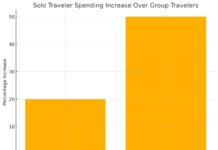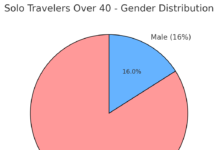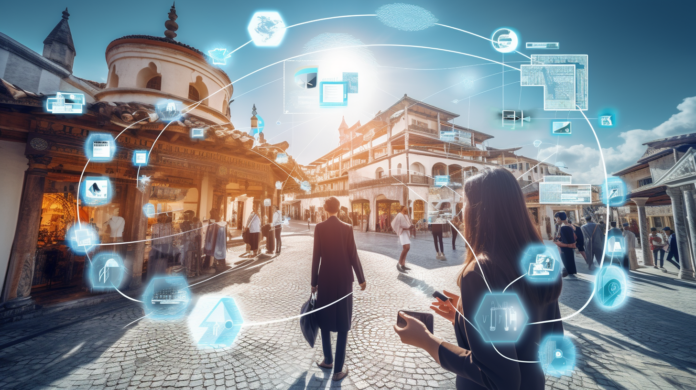
In recent years, the travel industry has witnessed a significant transformation, thanks to the integration of Artificial Intelligence (AI) into various processes. AI is revolutionizing the way travel agents operate, enhancing customer experiences, and optimizing operational efficiency. This article explores the fascinating intersection of AI and travel agents, showcasing the innovative ways this technology is shaping the future of the travel industry.
Understanding AI and Its Role in Travel
What is Artificial Intelligence?
Artificial Intelligence refers to the simulation of human intelligence in machines that are programmed to think and learn like humans. AI systems can analyze vast amounts of data, identify patterns, and make decisions with minimal human intervention. This technology has proven its value in numerous industries, from healthcare to finance, and now, it’s making waves in the travel sector.
The Advancements of AI in Various Industries
Before delving into AI’s role in the travel industry, let’s examine its impact on other sectors. AI has enabled personalized shopping experiences in e-commerce, enhanced precision in manufacturing processes, and revolutionized the way autonomous vehicles navigate our roads. These breakthroughs highlight AI’s potential to transform businesses and enhance overall efficiency.
AI in Travel: A Perfect Match
The travel industry thrives on data, and AI’s ability to process and analyze data quickly makes it a perfect match for this dynamic sector. From planning trips to booking accommodations and providing personalized recommendations, AI is reshaping the travel landscape, making it more convenient and enjoyable for travelers.
Enhancing Customer Experience Through Personalization
AI-Powered Travel Recommendations
One of the most exciting aspects of AI in travel is its ability to offer personalized recommendations to travelers. AI algorithms analyze a traveler’s preferences, past bookings, and online behavior to suggest destinations, activities, surmised below:
- User Profile Creation: Travelers begin by creating a profile that includes their preferences, budget, travel history, interests, and any specific requirements they might have.
- Data Collection and Analysis: The AI system gathers data from various sources, such as travel websites, social media, weather services, and local event calendars. It then processes and analyzes this information to identify trends and patterns.
- Personalized Recommendations: Based on the user’s profile and the analyzed data, the AI generates personalized travel recommendations. This may include suggestions for destinations, accommodations, activities, restaurants, and transportation options.
- Real-time Updates: The AI continuously updates its recommendations as new data becomes available. It can consider factors like flight delays, sudden weather changes, or last-minute events to adjust suggestions accordingly.
- Natural Language Interaction: Users can interact with the AI using natural language through chatbots or voice assistants. This allows for a seamless and user-friendly experience, where travelers can ask questions or seek additional information about the recommendations.
- Reviews and Feedback: AI-powered travel recommendation systems often incorporate user feedback and reviews to improve the accuracy of future suggestions. This feedback loop helps the AI understand user preferences better and refine its recommendations over time.
- Safety and Security: AI can also factor in safety and security considerations when making recommendations, ensuring that users are provided with reliable and secure options.
- Sustainability: Some AI-powered travel platforms also focus on promoting sustainable travel practices by suggesting eco-friendly accommodations, low-impact activities, and green transportation options.
Overall, AI-powered travel recommendations aim to enhance the travel experience by saving time, reducing decision-making stress, and ensuring that travelers make the most of their trips based on their unique preferences and interests.
Conclusion
As AI continues to advance and reshape the travel industry, it brings endless possibilities for travel agents and travelers alike. From personalized trip recommendations to seamless booking experiences, AI is enriching every aspect of travel. Embracing this technology and its potential to revolutionize the way we explore the world will undoubtedly lead to a more exciting and efficient travel experience for everyone.
FAQs
- Is AI in travel replacing human travel agents? While AI is transforming the travel industry, human travel agents still play a crucial role in providing personalized and specialized services that AI cannot entirely replace. AI serves as a valuable tool to enhance their capabilities and streamline operations.
- Are AI-powered chatbots reliable for customer support in travel agencies? Yes, AI-powered chatbots have proven to be reliable for handling routine customer queries and providing instant responses. They save time and allow human agents to focus on more complex customer needs.
- How does AI protect customer data in the travel industry? AI systems in the travel industry follow strict data protection protocols and adhere to privacy regulations to ensure that customer data is secure and not misused.
- Can AI predict travel trends accurately? AI algorithms can analyze past travel data and trends to make informed predictions about upcoming travel patterns, enabling travel agencies to stay ahead of the curve.
- What does the future hold for AI and travel? The future of AI in travel is incredibly promising. We can expect even more personalized experiences, efficient operations, and exciting AI-powered innovations in the years to come.
https://amadeus.com/en/insights/themes/artificial-intelligence-travel-industry



























